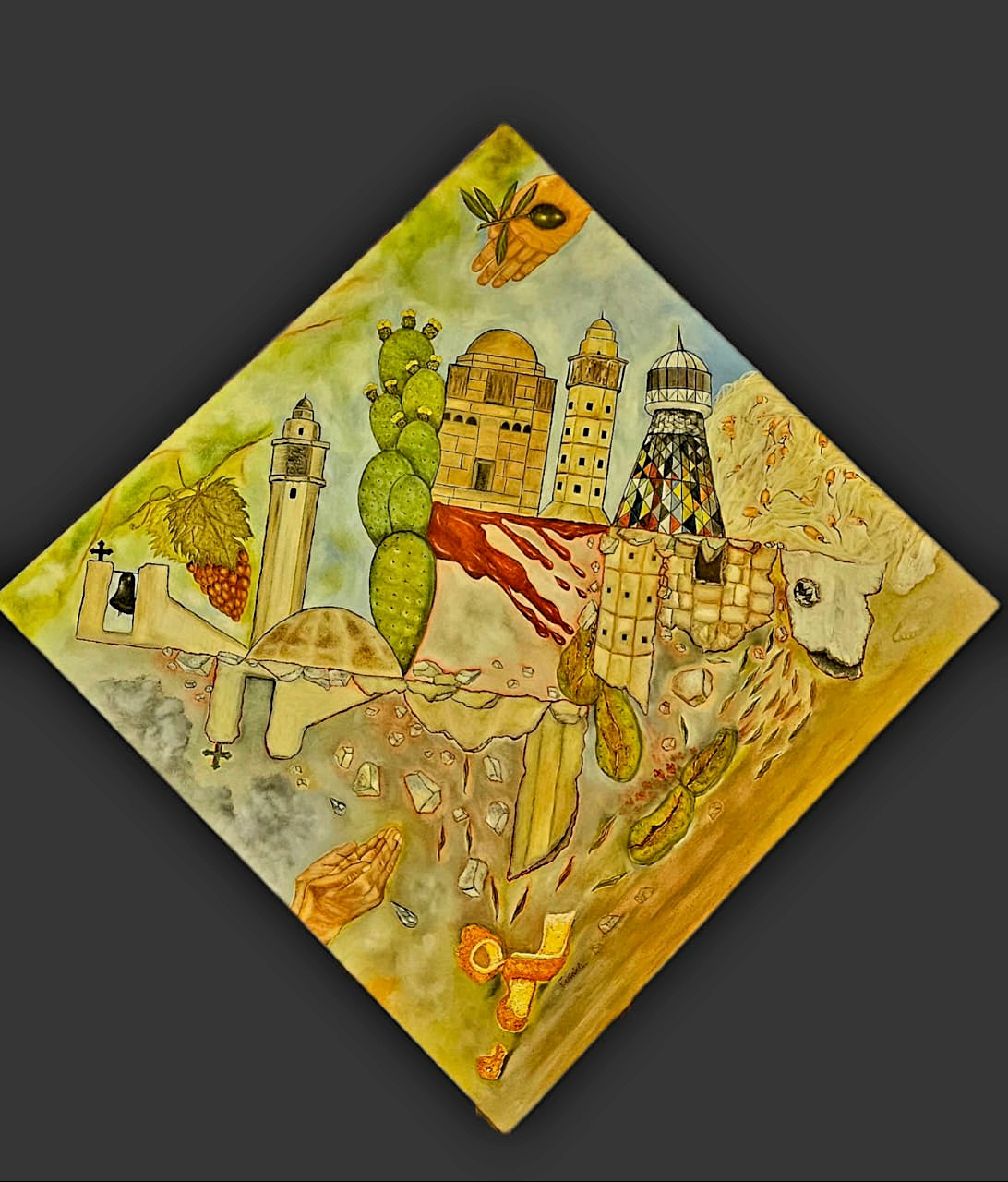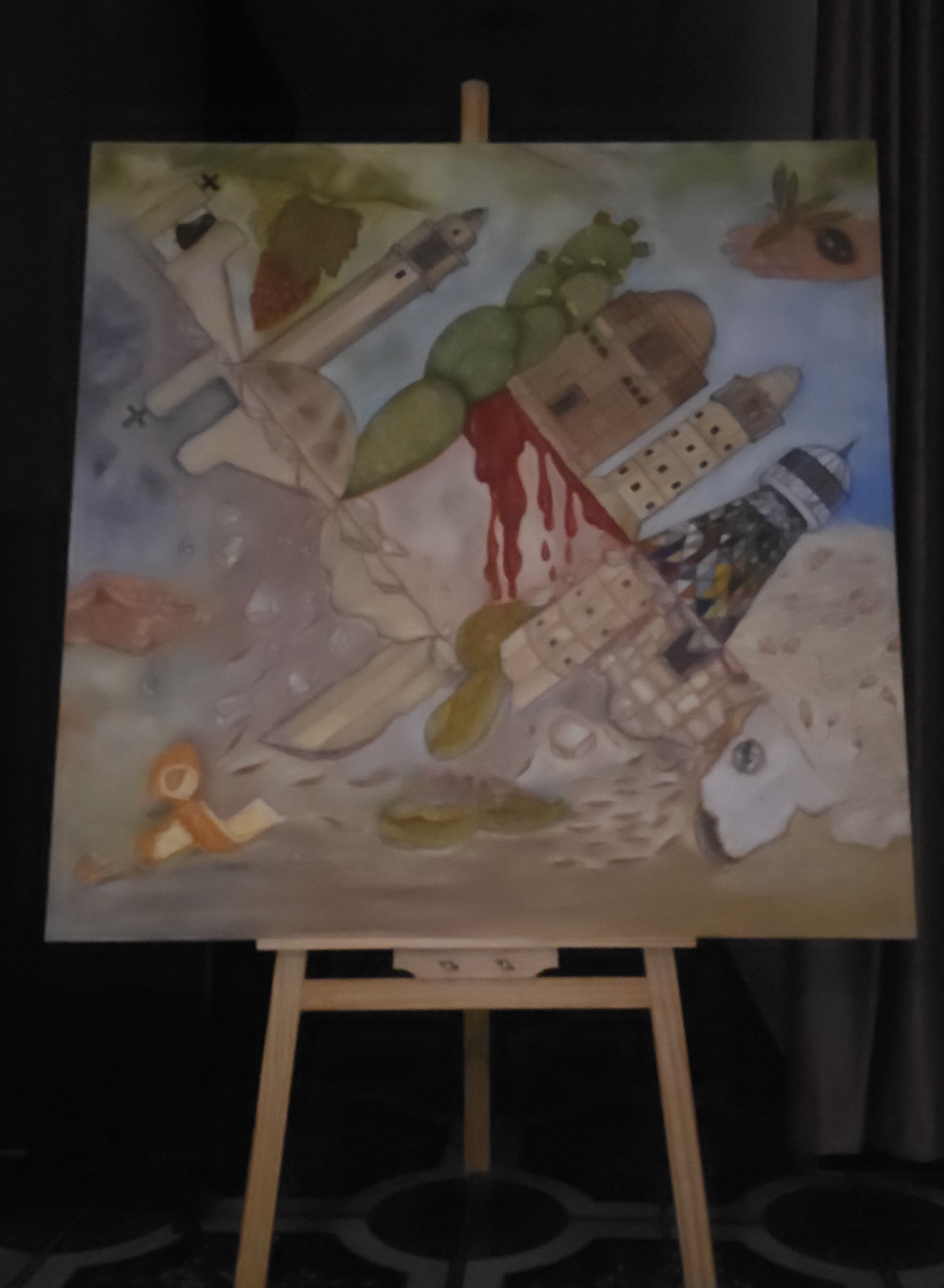Loss
Farah Qarmout
Born in Gaza, Palestine
Displaced in Cairo, Egypt

© Qarmout Farah. Courtesy of the artist.

© Qarmout Farah. Courtesy of the artist.
Qarmout presents an exhibition consisting of a single work: a one-meter by one-meter painting. Her work addresses one of the biggest questions in the history of art and within art itself: How can art reckon with the unimaginable and, therefore, the unrepresentable? This question has been asked of art in the wake of genocide. We are now asking it in its midst. Qarmout’s question goes to the heart of the Gaza Biennale project.
The artist takes up this challenge by shifting the focus from the brutality of massacres to the experience of loss. Her approach attempts to represent the unrepresentable, and she does this by thinking with shapes and colors. Rather than focusing on specific details, her approach emphasizes the general. The pain and reality of people’s experiences and suffering are beyond our ability to imagine and beyond representation.
We are living in a time of genocide, of horrors and their details that are unrepresentable, and yet they must be seen, felt, and understood for some reckoning to take place, and for healing to begin. Qarmout believes in beauty, in life, and her work reflects that. To represent the feeling of loss, as a way to heal the unimaginable traumas of this war, is her method. We are perhaps not far from Malevich’s Black Square, the “zero point of painting,” as Qarmout attempts to push representation to its limits. It is perhaps not a coincidence that she chose the dimensions of one-meter by one-meter for this work.
Farah Qarmout began her journey into the world of fine art when she decided to search for her passion and dedicate herself to practicing art. In 2019, she started painting with various mediums: pencil, charcoal, pastels, and watercolors. Qarmout shared her drawings on social media, and her simple works received admiration and encouragement, which motivated her to pursue art as a refined tool for self-expression, and to convey her artistic taste and opinions on the various issues around her.
Her work with oil painting began when she participated in an art workshop for the first time at the Dar al-Kalima University Training Center in Gaza in 2021. She produced oil paintings that amazed many, earning her recognition and leading to the opportunity to hold a solo exhibition at the Dar al-Kalima University Center. In the exhibition Relative Calm (2023), Qarmout discovered a passion for investigating colors from observations of nature and the objects around her, revealing the details and beauty of everything she sees. Her success and passion for art led to a desire to learn more and study the world of fine art. She showed competence in contemporary art and participated in various group exhibitions for photography, conceptual painting, sculpture, and printmaking. Her artworks include twenty oil paintings, three sculptures, and ten prints. Her work has been in exhibitions in Gaza and the West Bank, most recently in This is Not an Exhibition (2024) at the Palestinian Museum and Turning Point at the Qattan Center in Ramallah.
The recent war in Gaza has affected the entire Palestinian artistic environment, marking an end or a beginning for every Palestinian in Gaza. Qarmout lost her studio and had been living a life of displacement, anxiety, and deprivation for months until she was able to flee with her family to Egypt. The fate of her remaining paintings in her family’s home is unknown. Her works on display in Gaza have all been destroyed due to the intense Israeli bombing of the Shifa area.
Qarmout finds in art a refuge and a refined tool to affirm the ongoing existence of Palestine’s intellectual and cultural traditions. She takes pride in belonging to this rich environment—Palestine, with all its historical, geographical, and cultural components. For Qarmout, art is not just a cultural field but a vessel to connect with every place and time, and the highest means of expression and participation in all the issues that matter to humanity.
